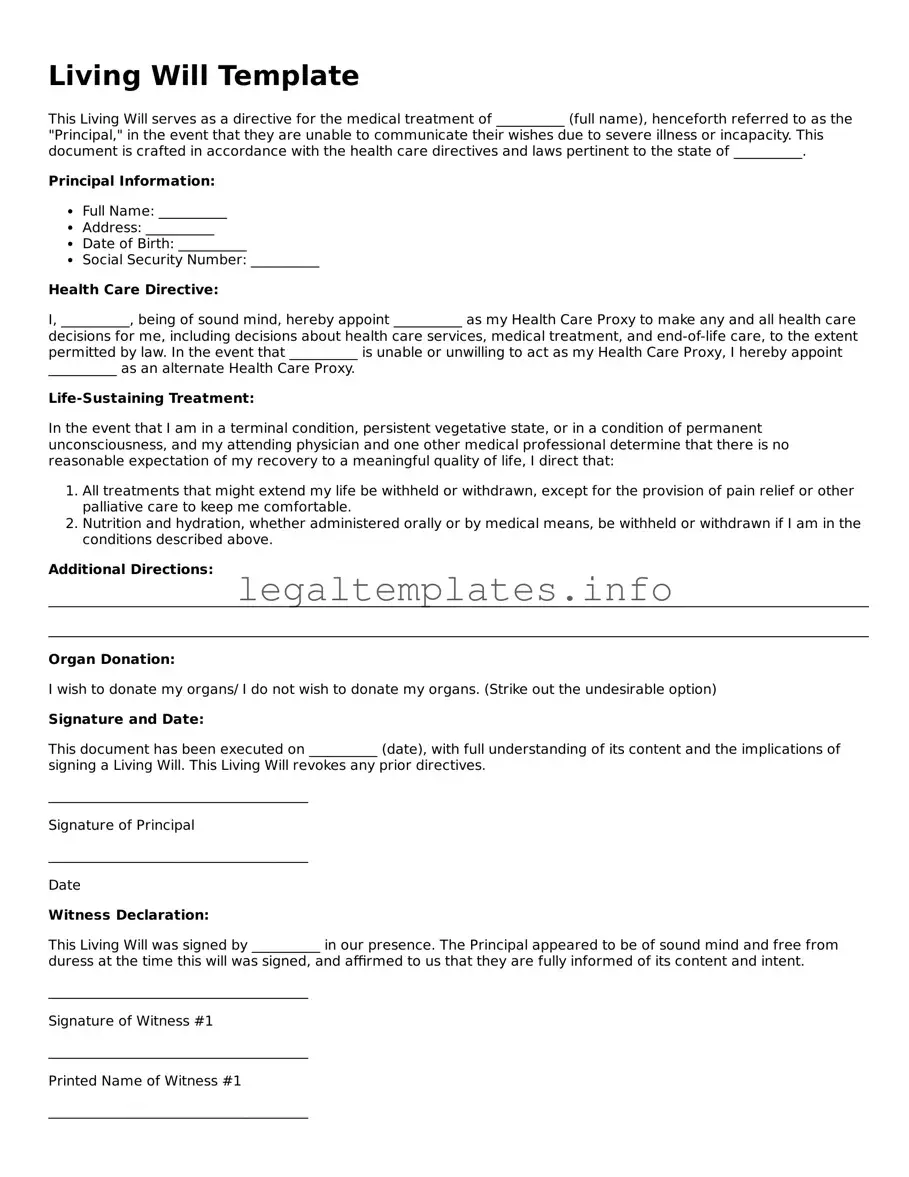Living Will Template
This Living Will serves as a directive for the medical treatment of __________ (full name), henceforth referred to as the "Principal," in the event that they are unable to communicate their wishes due to severe illness or incapacity. This document is crafted in accordance with the health care directives and laws pertinent to the state of __________.
Principal Information:
- Full Name: __________
- Address: __________
- Date of Birth: __________
- Social Security Number: __________
Health Care Directive:
I, __________, being of sound mind, hereby appoint __________ as my Health Care Proxy to make any and all health care decisions for me, including decisions about health care services, medical treatment, and end-of-life care, to the extent permitted by law. In the event that __________ is unable or unwilling to act as my Health Care Proxy, I hereby appoint __________ as an alternate Health Care Proxy.
Life-Sustaining Treatment:
In the event that I am in a terminal condition, persistent vegetative state, or in a condition of permanent unconsciousness, and my attending physician and one other medical professional determine that there is no reasonable expectation of my recovery to a meaningful quality of life, I direct that:
- All treatments that might extend my life be withheld or withdrawn, except for the provision of pain relief or other palliative care to keep me comfortable.
- Nutrition and hydration, whether administered orally or by medical means, be withheld or withdrawn if I am in the conditions described above.
Additional Directions:
________________________________________________________________________________________________________________________
________________________________________________________________________________________________________________________
Organ Donation:
I wish to donate my organs/ I do not wish to donate my organs. (Strike out the undesirable option)
Signature and Date:
This document has been executed on __________ (date), with full understanding of its content and the implications of signing a Living Will. This Living Will revokes any prior directives.
______________________________________
Signature of Principal
______________________________________
Date
Witness Declaration:
This Living Will was signed by __________ in our presence. The Principal appeared to be of sound mind and free from duress at the time this will was signed, and affirmed to us that they are fully informed of its content and intent.
______________________________________
Signature of Witness #1
______________________________________
Printed Name of Witness #1
______________________________________
Date
______________________________________
Signature of Witness #2
______________________________________
Printed Name of Witness #2
______________________________________
Date

